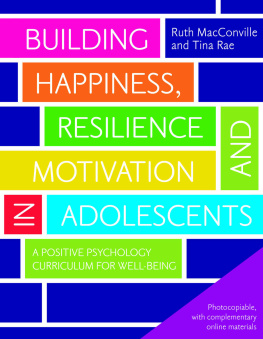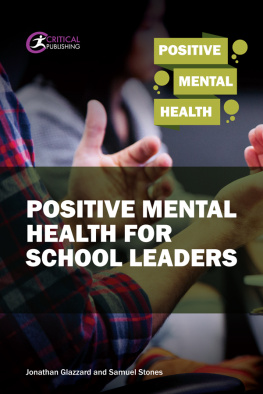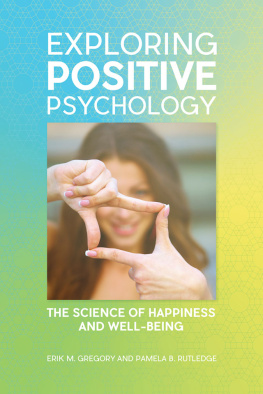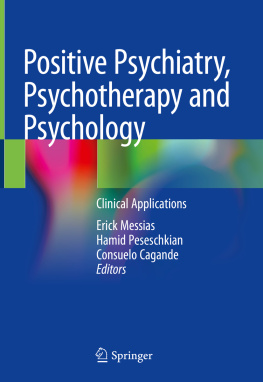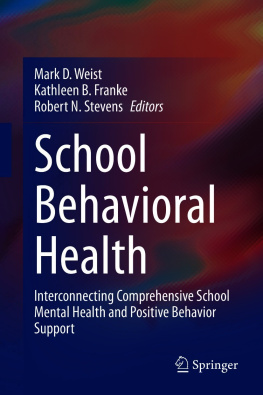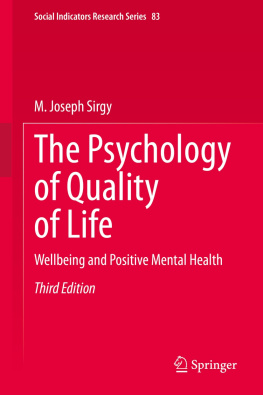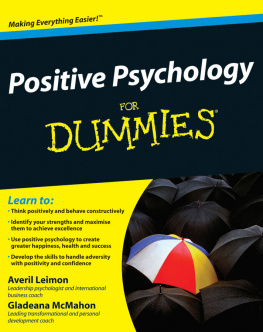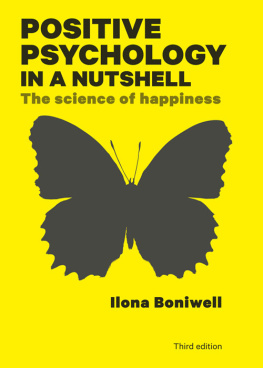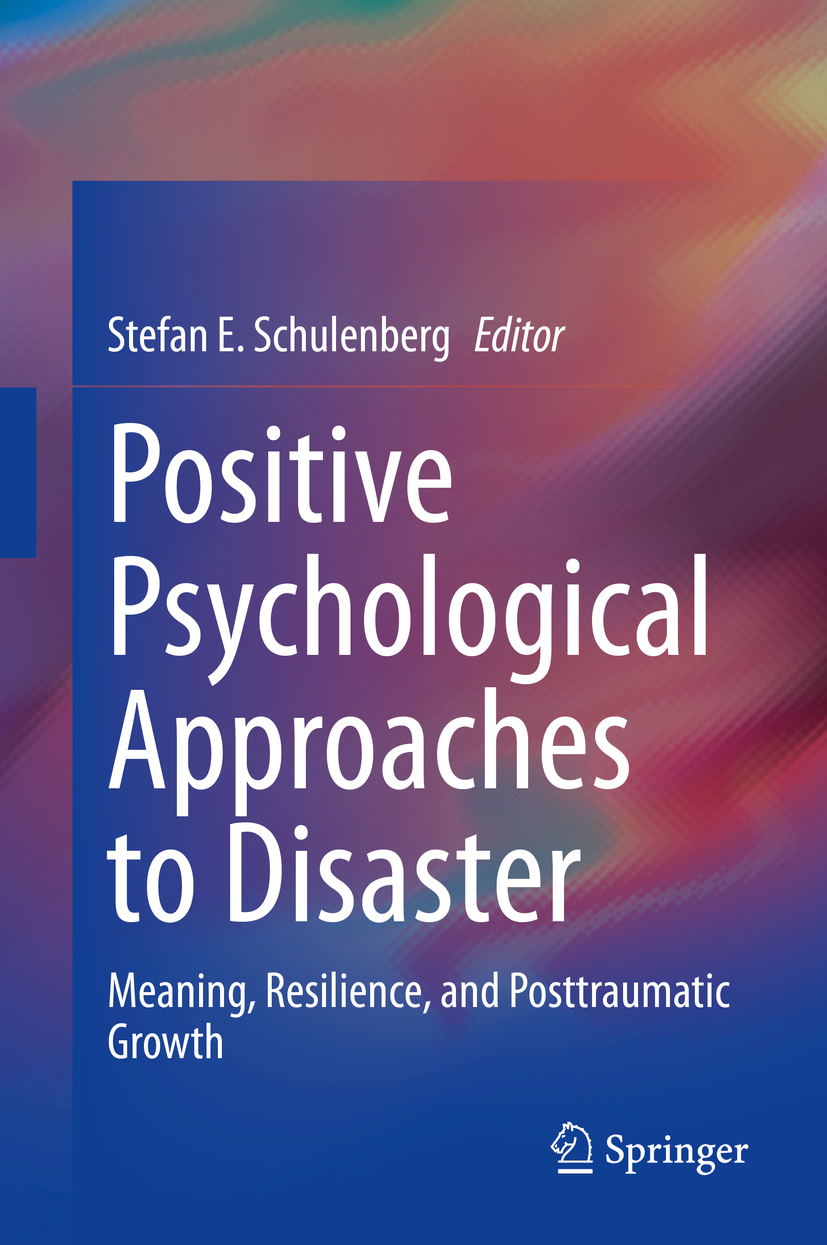Fundamentally, therefore, any man can, even under such circumstances, decide what shall become of him - mentally and spiritually It is this spiritual freedom - which cannot be taken away - that makes life meaningful and purposeful.
Viktor E. Frankl, Mans Search for Meaning
I am delighted to offer opening comments on this collection of new contributions to the study of disaster mental health and positive psychology,Positive Psychological Approaches to Disaster: Meaning, Resilience, and Posttraumatic Growth. As the above quote conveys, humans hold the unique capacity to self-transcend even the most tragic of circumstances and to showcase the triumph of the human spirit in the face of adversity, trauma, and suffering. The unique book you are holding celebrates this spirit with an inspiring voice of hope that speaks throughout the pages. It constitutes an important and timely contribution to scholarly research and practice, but even more, it offers valuable insights into the understanding of human existence as a whole and in particular into human experience in potentially destructive conditions.
Disasters, as an inevitable part of human life, present pressing challenges and far-reaching consequences for individuals and societies. They can shake us to the core, by posing a potent threat to our everyday sense of stability, safety, and predicted order of the world. While the study of the wide range of negative consequences of disaster is naturally essential and important to identifying mental health symptomology and to the development of coping strategies, it does not reveal the full spectrum of human potentiality. Less is known about its complementary aspects of human flourishing in the face of trauma and disasters. Indeed, although disasters and trauma are generally viewed as unwanted, they also hold a constitutive and transformative force that brings us in connection with ourselves and our hidden capacities and strengths. As disasters essentially expose our human vulnerabilities and remind us of our limitations, they may also enable greater awareness of the fragility of our being and surface deeper questions about meaning in our lives.
In a way, the art of living an authentic life in the face of transient existence engages the full range and aspects of the beauty and gravity of being human. Human life is not as neatly organized as theoretical conceptualizations presume it to be; it is a blend, a mixture of colors. New colors emerge from that mixture, richer and more intense than those that just reside next to each other in a painters palette. At the core of our being as humans lie paradoxes and dichotomies that contain the whole of existence and encapsulate completeness. In this sense, wholeness involves brokenness as an essential and inherent part of a full life.
Much like Frankl, Elisabeth Lukas reminds us that what matters are actually never the conditions you find yourself in, but always the lifework that you were able to build from it (Lukas 1986). Along the same lines, this volume offers a unique overview of the ingredients and processes that enable us to uncover the hidden beauty and power of the shattered, in which the broken beauty not only survives but thrives. As the various chapters demonstrate, through integrative exploration of theory and practice, when we allow ourselves and others to acknowledge the cracks and wounds, something new is given a space for growth. The potentially destructive can become constructive.
I invite you to delve into the breadth and depth of this volume and to be inspired by its engaging, comprehensive, and much-needed exploration of the human potential to grow and even flourish amidst lifes potentially dismantling challenges. The chapters fit together into a rich mosaic that reminds us that human development, as existence itself, is not a static destination to which we should aim but rather a constantly changing, evolving state of becoming. As a whole, the book signals important advances in the understanding and use of positive psychology, resilience, and meaning frameworks to enable human growth and transformation in the wake of traumatic events. Building on varied perspectives, it opens up new academic and clinical as well as personal horizons. Shedding light on aspects of resilience, meaning, spirituality, and growth in the context of natural and technological disasters, this volume presents an integrative discussion that broadens the scope of what it means to be human. The authors and the editor, who have joined their energy and expertise to share novel and promising insights in the rapidly growing area of positive psychology, lead us through a thought-provoking journey. I hope that while reading it, you will see why this book is a vivid reminder that there is something more to human experience than meets the eye, and it is that something more that animates life as we experience it.
Pninit Russo-Netzer, Ph.D. Positive Psychology Researcher and Senior Lecturer, Diplomate in logotherapy; Coeditor ofMeaning in Positive and Existential Psychology(Springer),



